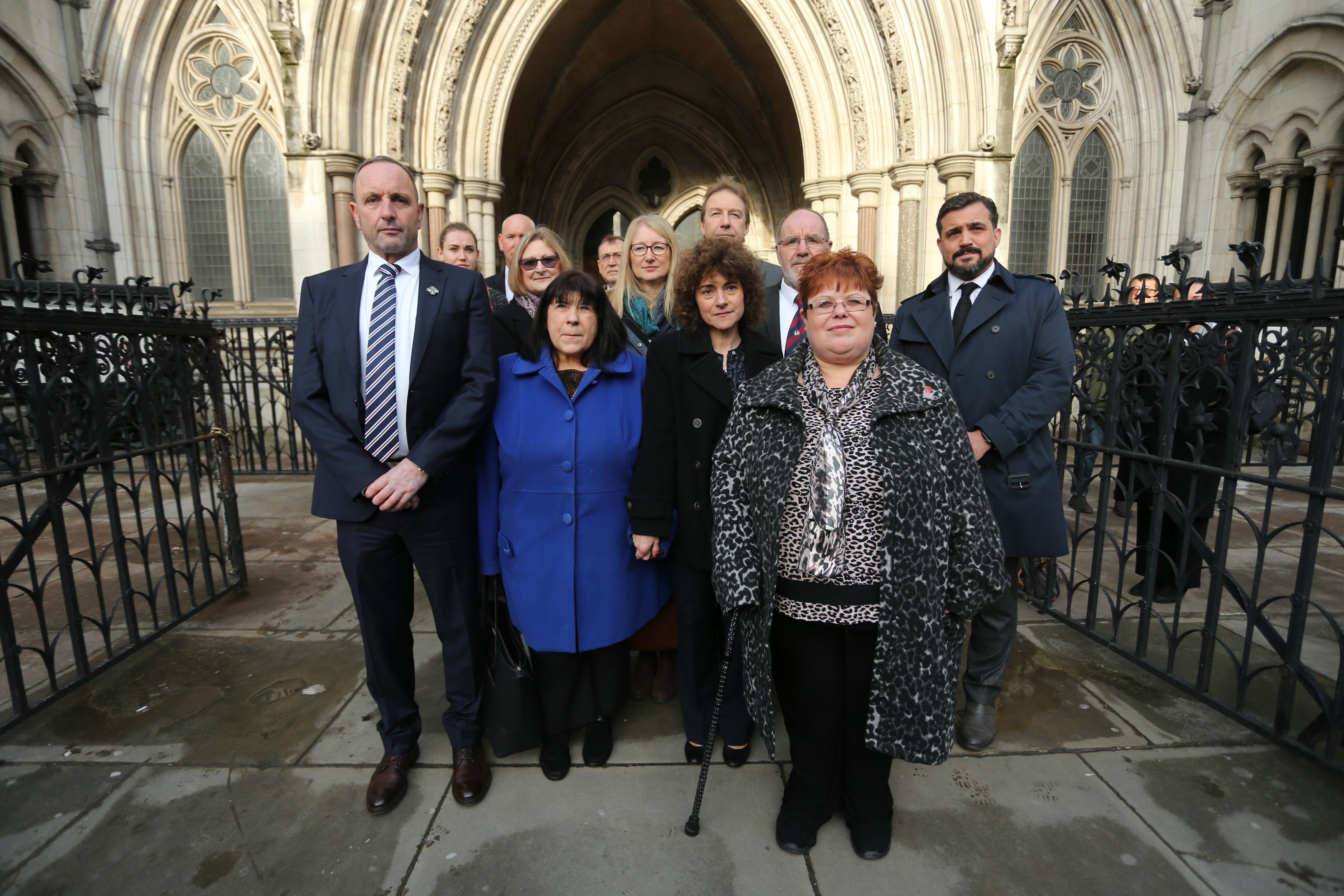Families of Hyde Park bombing victims to appeal ruling against damages
Relatives of victims have been denied ‘justice and closure’, lawyers say

Your support helps us to tell the story
From reproductive rights to climate change to Big Tech, The Independent is on the ground when the story is developing. Whether it's investigating the financials of Elon Musk's pro-Trump PAC or producing our latest documentary, 'The A Word', which shines a light on the American women fighting for reproductive rights, we know how important it is to parse out the facts from the messaging.
At such a critical moment in US history, we need reporters on the ground. Your donation allows us to keep sending journalists to speak to both sides of the story.
The Independent is trusted by Americans across the entire political spectrum. And unlike many other quality news outlets, we choose not to lock Americans out of our reporting and analysis with paywalls. We believe quality journalism should be available to everyone, paid for by those who can afford it.
Your support makes all the difference.The families of the victims of the Provisional IRA’s 1982 Hyde Park bombing are to challenge a high court decision not to award punitive damages for the atrocity.
The judge told Sarah Jane Young, whose father was killed in the attack when she was four years old, and relatives of other victims that awarding such damages would require an extension of the law which would be "for either parliament or the higher courts, and probably the supreme court".
Mr Justice Martin Spencer said it was the first time courts in England and Wales had considered the issue of exemplary damages in the context of a civil claim arising from a terrorist attack.
Lawyers for relatives of the four soldiers killed that day had argued that they were being denied some “measure of justice, and thereby closure,” as no one had ever been prosecuted, convicted and punished.
In light of the ruling, a spokesperson for the families said the law “urgently needs to be revised and extended to properly compensate victims and survivors of terrorism and to provide a significant deterrent against terrorists and terror groups, and those who finance and support them”.
The judge said he relied on a decision of the House of Lords in a case brought in Northern Ireland over the 1998 Omagh bombing, in which the law lords said it was not appropriate for them to “embark upon the radical extension” of the law needed to award exemplary damages.
He awarded Ms Young more than £715,000 in damages for losses sustained as a dependent of her father. However, he rejected her claim for a further £121,500 damages for the psychiatric injury she suffered, despite finding that post-traumatic stress disorder has "blighted her life".
Ms Young’s barrister Anne Studd QC told the court that, as a four-year-old, Ms Young watched from her nursery window as her father left on horseback for the last time before hearing the explosion and seeing wounded soldiers return to the Knightsbridge barracks.
Matthew Jury, Ms Young's solicitor, said: "Sarah Jane's long brave fight has never been about anything other than the rights of her fellow victims and survivors of terrorism.
"Every day in the life of a victim and their families is irrevocably damaged by physical and mental injury, by the loss of loved ones and all too frequently, the denial of justice.
"Victims deserve truth and accountability. This matter will now progress to the court of appeal to ensure that this case and Sarah Jane may leave a legacy that will strengthen and serve the rights of all victims of terrorism."
It is unclear whether Ms Young will be able to claim the damages awarded to her as convicted IRA member John Downey transferred his assets to his wife following the launch of the civil claim against him.
Mr Downey’s trial began in 2014 but collapsed the following it was revealed a letter had mistakenly been sent to him by police assuring him that he would not be prosecuted over the attack.
The car bomb in July 1982 killed Squadron Quartermaster Corporal Roy Bright, 36, Lieutenant Dennis Daly, 23, Trooper Simon Tipper, 19, and Lance Corporal Jeffrey Young, 19, as they rode through Hyde Park to attend the changing of the guard.






Join our commenting forum
Join thought-provoking conversations, follow other Independent readers and see their replies
Comments